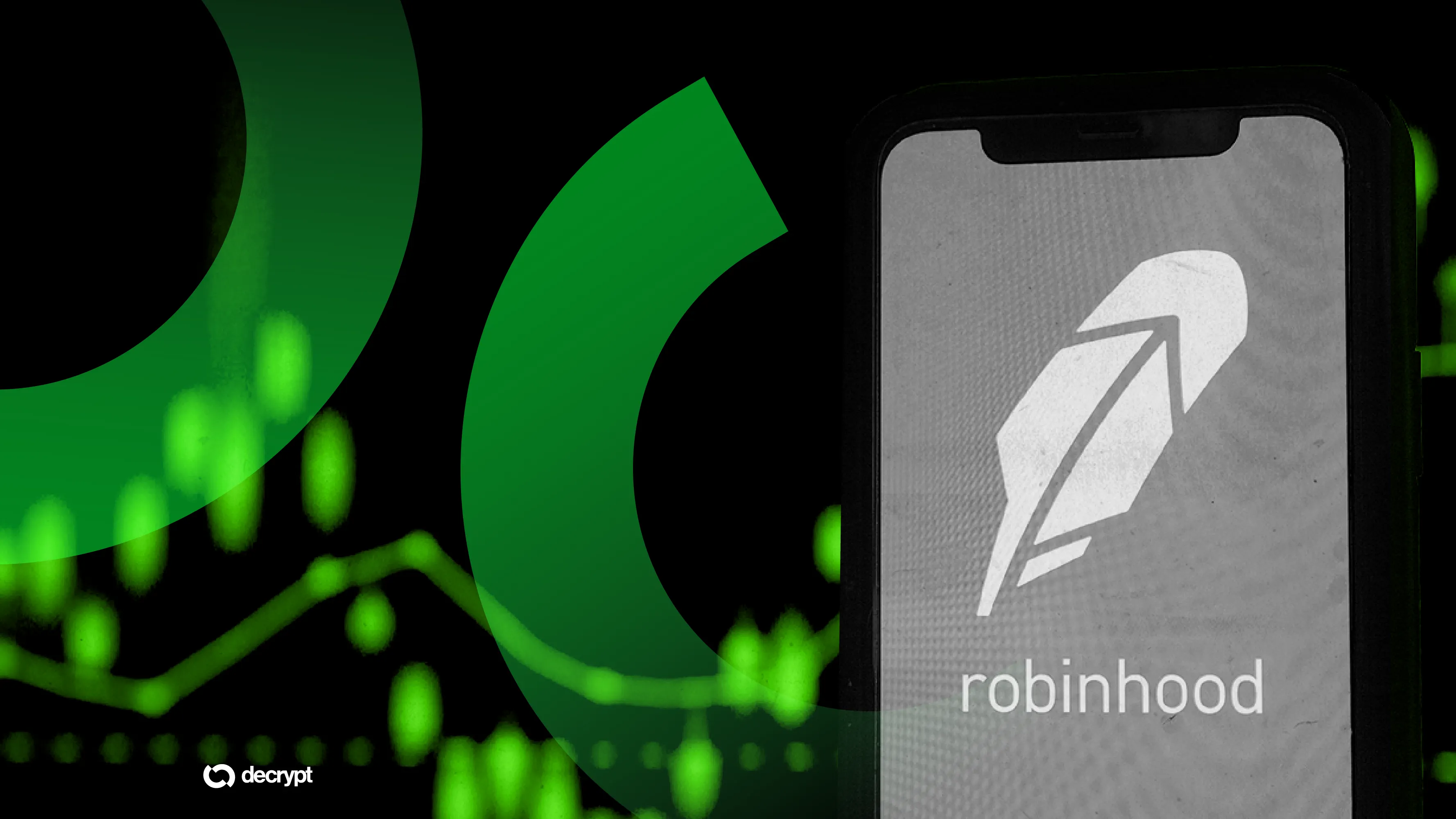In brief
- Robinhood is rolling out tokenized stock trading for users in Europe, tapping the Ethereum layer-2 scaling network Arbitrum.
- The trading platform will also launch its own Ethereum layer-2, which is being designed around real-world assets.
- European users will get access to crypto perpetual futures, while American users can stake Ethereum and Solana.
Robinhood users in Europe are now able to trade U.S.-listed stocks and exchange-traded funds as tokens on Arbitrum, the Ethereum layer-2 scaling network, the company said in a press release published on Monday alongside a keynote event in France.
They will also start gaining access to crypto perpetual futures, a form of derivatives supporting up to 3x leverage.
With tokenized stock trading and crypto perpetual futures, Robinhood said its European app is becoming an “all-in-one investment app powered by crypto,” which will eventually leverage a custom Ethereum layer-2 scaling network developed by the Menlo Park, California-based firm.
“For us, having an EVM-compatible chain was very important,” Johann Kerbrat, Robinhood Crypto’s senior vice president and general manager, told Decrypt in a recent interview. “At the end of the day, the idea of putting stock on-chain was to remove this walled garden.”
Kerbrat said that Robinhood’s layer-2 network has been a “multi-year process,” noting that the network is being specifically designed around trading real-word asset on-chain.
With crypto-related bills inching forward on Capital Hill, Robinhood is leaning into its crypto arm within the U.S. and abroad, as traditional financial institutions prepare their own products. The features and services announced by Robinhood on Monday are set to compete with leading crypto exchanges, whether that’s Kraken’s tokenized stocks, or Coinbase’s Base network.
In addition, the company said it is enabling staking for customers in eligible regions across the U.S., starting with Ethereum and Solana. Staking faced scrutiny under former SEC Chair Gary Gensler, but the regulator no longer believes that staking involves security laws, following guidance released last month.
Cutting out the middleman
Robinhood is trying to cut out middlemen who charge Europeans “exorbitant costs” when trying to access U.S.-listed assets, according to Robinhood Crypto Head of Product Seong Seog Lee. The feature borrows Robinhood’s zero-commission trading structure, only charging a 0.1% foreign-exchange fee, he told Decrypt.
Eventually, users will be able to self-custody tokenized stocks and ETFs through Robinhood’s digital wallet, Lee said. When trading the assets on Robinhood’s primary app, users don’t have to manage private keys either, an intentional simplification, he added.
Robinhood’s orders for perpetual futures, which do not have a settlement date, unlike traditional futures contracts, are routed through Bitstamp's exchange, the company said. Robinhood acquired the crypto exchange in June through a $200 million cash deal.
On Monday, Robinhood teased other features for crypto-natives, including a credit card that will let customers receive cash back in crypto this fall, a 1% boost on crypto deposits for a limited time, and “tax lots” for digital assets that let customers sell crypto more strategically.
“We think that a lot of advanced traders will be excited about that feature because you don't want to pay the IRS if you don't have to, right?” Kerbrat asked.
Although Robinhood’s crypto services were limited to Italy, Spain, Poland, and Lithuania, the company said it can now service 31-plus continues in the region after securing a Markets in Crypto Assets, or MiCA, license. Coinbase said it received one earlier this month, too.
Edited by James Rubin

